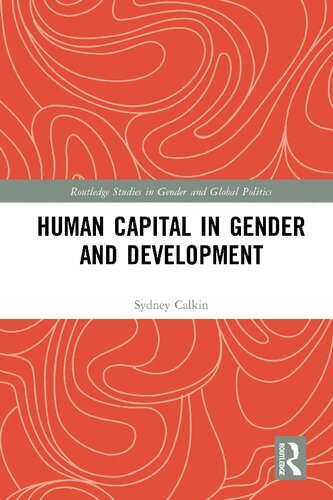

Most ebook files are in PDF format, so you can easily read them using various software such as Foxit Reader or directly on the Google Chrome browser.
Some ebook files are released by publishers in other formats such as .awz, .mobi, .epub, .fb2, etc. You may need to install specific software to read these formats on mobile/PC, such as Calibre.
Please read the tutorial at this link. https://ebooknice.com/page/post?id=faq
We offer FREE conversion to the popular formats you request; however, this may take some time. Therefore, right after payment, please email us, and we will try to provide the service as quickly as possible.
For some exceptional file formats or broken links (if any), please refrain from opening any disputes. Instead, email us first, and we will try to assist within a maximum of 6 hours.
EbookNice Team

Status:
Available0.0
0 reviewsHuman Capital in Gender and Development addresses timely feminist debates about the relationship between feminism, neoliberalism, and international development. The book engages with human capital theory, a labour economics theory associated with the Chicago School that now animates a wide range of political and economic governance. The book argues that human capital theory has been instrumental in constructing an economistic vision of gender equality as a tool for economic growth, and girls and women of the global South as the quintessential entrepreneurs of the post-global financial crisis era.
The book’s critique of human capital theory and its role in Gender and Development gives insights into the kinds of development interventions that typify the ‘Gender Equality as Smart Economics’ agenda of the World Bank and other international development institutions. From the World Bank, to NGOs, and private businesses, discourses about the economic benefits of gender equality and women’s empowerment underpin a range of development interventions that aim to unlock the ‘untapped’ potential of the world’s women. Its implications are both conceptual and material, producing more interventionist forms of development governance, increased power by private sector actors in development, and de-politicization of gender equality issues.
Human Capital in Gender and Development will be of particular interest to feminist scholars in Politics, International Relations, Development Studies, and Human Geography. It will also be a useful resource for teaching key debates about feminism, neoliberalism, and international development.